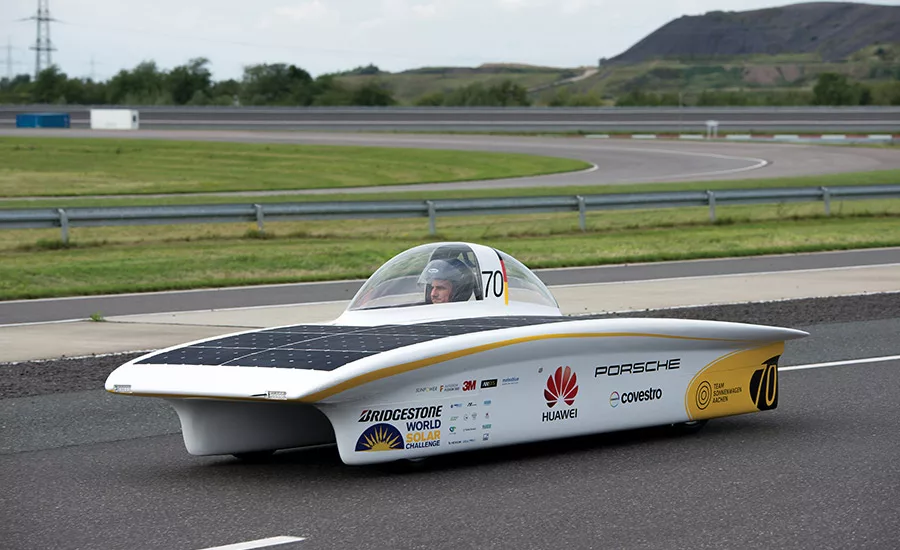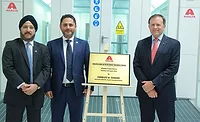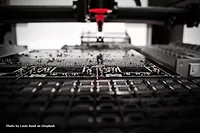Advancing Adhesives
New Automotive Refinish Drives Change
An automotive refinish coating with bio-based hardener found success at the Bridgestone World Solar Challenge 2017 in Australia.

Electric mobility and photovoltaics play a vital role in protecting the climate and conserving fossil resources. Combining them leads to even more innovative and sustainable mobility concepts. To show that these kinds of solutions are already feasible using state-of-the-art materials and technologies, a team of around 45 young researchers has developed a solar-powered electric car. Calling themselves “Team Sonnenwagen,” the students from RWTH Aachen University and Aachen University of Applied Sciences ranked fifth in the trials of the Bridgestone World Solar Challenge 2017 in Australia, one of the toughest races in the world for solar cars.
Covestro supported the Sonnenwagen project with materials and technical service and as a gold sponsor. The company wanted to use the project to test coatings under the harsh climate conditions prevailing along the race’s route. Temperatures in the Australian desert can soar to as much as 45°C (113°F) in October, with intense UV radiation. This time of year also typically sees a high particle concentration in the air.
Road Test
The most important product application is a three-layer polyurethane coating from PPG. The coating system is particularly suited to coating body parts made of carbon fiber composites. Climate conditions have a significant impact on the top clearcoat. The Sonnenwagen uses an innovative automotive refinish coating that contains Covestro’s bio-based Desmodur® eco N 7300 hardener.
“Some 70% of its carbon content comes from biomass,” explains Ulf Wentzien, global head of Industrial Marketing in the Coatings, Adhesives, Specialties Business Unit at Covestro. “This reduces the environmental footprint by around 30%.”
“The bio-based hardener achieved the highest sustainability standards and meets both our customers’ and our own requirements,” says Ignasi Roig, EMEA Product Platform Manager at PPG Refinish. “The coating is to the same outstanding quality as a polyurethane clearcoat with a conventionally produced hardener.”
Easy Processing
In PPG’s training center in Hilden, the two-component coating was applied to the Sonnenwagen’s bodywork parts under similar conditions to an automotive paint shop. The coating is particularly suitable for the temperature-sensitive surface of the solar-powered car as it hardens at low temperatures.
Covestro and PPG have been working together in the field of coatings development for many years. Both partners are using the Sonnenwagen project to demonstrate the role coatings can play in sustainable mobility.
Tough Test for Solar Cars
The World Solar Challenge, now in its 30th year, is considered to be the toughest race on Earth for solar cars. The 2017 challenge saw some 40 teams from all over the world compete in their “homemade” vehicles to win the 3,000-km race from Darwin to Adelaide―without using one drop of fuel. The Sonnenwagen from Aachen was reportedly the only German car competing in the Challenger Class.
Covestro has a long-standing partnership with the RWTH Aachen University. “Through our developments and this project partnership, we are committed to future mobility and aim to show that these kinds of concepts are already feasible,” says Covestro’s Ulf Wentzien. “At the same time, we have the opportunity to inspire and support young people at universities.” ASI
For more information, visit www.ppg.com. Covestro can be found online at www.covestro.com.
Looking for a reprint of this article?
From high-res PDFs to custom plaques, order your copy today!






